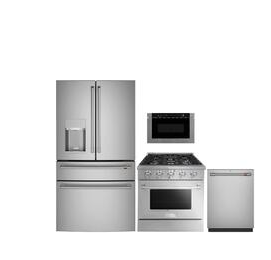HOW MANY YEARS DOES A REFRIGERATOR LAST?

When we furnish our house and buy all the appliances, we make a great investment. We know that all these appliances have a limited useful life, and when one of them breaks down, it can lead to a large unexpected expense.
When buying an appliance, the first thing we look at is the value for money, without stopping to think about durability.
According to a study, the price allows us to get an idea of the durability of each of the appliances regardless of the brand we choose.
HOW LONG DOES EACH OF THE APPLIANCES YOU HAVE IN YOUR HOME LAST?

In this aforementioned study, the company has conducted a survey of 15,000 members to determine an average duration of each appliance. To do this, different brands and types have been compared, from large appliances, such as refrigerators or washing machines, to small appliances, such as microwaves or vacuum cleaners.
While for large appliances, a scale is established that is around an average of 10 years of duration, an average life of 9 years has been estimated for small appliances.
TIPS TO EXTEND THE LIFE OF YOUR REFRIGERATOR

When we consider that an appliance is "old" and it breaks down, we overlook the option of repairing it. We went directly to the internet to look for information on new models.
Technology advances by leaps and bounds, and when we see all the modern and innovative features that a new device can offer us, the desire to buy is immediately activated, without even stopping to think if our appliance has already exhausted its useful life.
Before thinking about replacing our appliance, we must stop to think about how to take better care of it to extend its useful life and contribute to protecting the environment.
For this reason, the best option is to choose brands of electrical appliances that use materials that extend the life of the appliances and facilitate their recycling process.
When it comes to preserving our refrigerator, cleaning and good maintenance are essential aspects to increase its durability. If we follow the advice that we offer below, we can extend its useful life to 16 years.
PLACE IT IN THE RIGHT SPACE

The refrigerator must be far from both heat sources and areas with water.
Placing it near the heat of the ceramic hob or oven can cause it to be in constant operation when it perceives high heat temperatures. While in spaces with water where the sink, dishwasher, or washing machine is located, we run the risk of accidents in the event of a water leak, since this device needs to be constantly working with electricity.
The ideal is to place it in a corner of the kitchen where it does not bother and located 10 cm from the wall so that it can dissipate the heat of the motor.
LEVEL THE REFRIGERATOR

Keeping the refrigerator level influences the tightness of the door. If our refrigerator is uneven, the door will not be sealed, and the food will not be well preserved. The motor will be in continuous operation and could be damaged.
MAINTAIN A CORRECT TEMPERATURE

Misusing the temperature of the refrigerator and freezer can considerably impact the energy consumption of our home. Lowering the degrees does not mean that it will cool more, but that it will spend more.
The temperature must be adapted to both the capacity and the amount of food. The refrigerator must be kept between 3 and 4 degrees Celsius, and if it is very full, it can be lowered to 2ºC, while the freezer must be between -15 and -18ºC.
CORRECT DISTRIBUTION OF FOOD

It is recommended not to fill the refrigerator to the top so that there is space between the food and the wall, at least 3 cm. In this way, the fridge will distribute the cold to all the foods equally and avoid obstructing the air vents.










